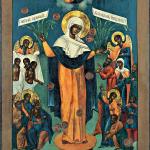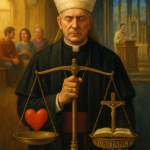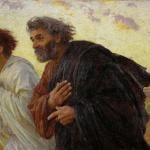THE NEW CITY JOURNAL includes this excellent piece from Theodore Dalrymple, on colonialism in Africa. Stanley Kurtz makes the connections to postwar Iraq here (and scroll up for more). Excerpts: “Like most of the people I met in Rhodesia, we tried to treat our staff well, providing extra help for them for the frequent emergencies of African life—for example illness among relatives. In return, they treated us with genuine solicitude. We assuaged our conscience by telling ourselves—what was no doubt true—that they would be worse off without our employ, but we couldn’t help feeling uneasy about the vast gulf between us and our fellow human beings.
“By contrast, our relations with our African medical colleagues were harder-edged, because the social, intellectual, and cultural distance between us was far reduced. Rhodesia was still a white-dominated society, but for reasons of practical necessity, and in a vain attempt to convince the world that it was not as monstrous as made out, it had produced a growing cadre of educated Africans, doctors prominent among them. Unsurprisingly, they were not content to remain subalterns under the permanent tutelage of whites, so that our relations with them were superficially polite and collegial, but human warmth was difficult or impossible. Many belonged secretly to the African nationalist movement that was soon to take power; and two were to serve (if that is the word to describe their depredations) as ministers of health.
[clipped]
This issue of City Journal also includes a story on ACORN, the living-wage pushers, which is not so remarkable in itself but which includes this chewy little tidbit: “For more than a decade, ACORN has used foundation grants to start up its own New York public schools, something the Board of Ed sometimes allows community-based organizations to do. With warm-sounding names like the Bread and Roses High School, ACORN’s schools are political-indoctrination centers with mediocre academic records. Their curricula abound with ‘social justice’ themes that wouldn’t be out of place at an ACORN community organizers’ training school. Bread and Roses, for example, holds an annual ‘Why Unions Matter’ art project to ‘teach students how labor unions work and what they do to support social change, economic growth and democratic principles.’ The schools have even bused kids to Washington to demonstrate against ‘tax cuts for the rich.'”











